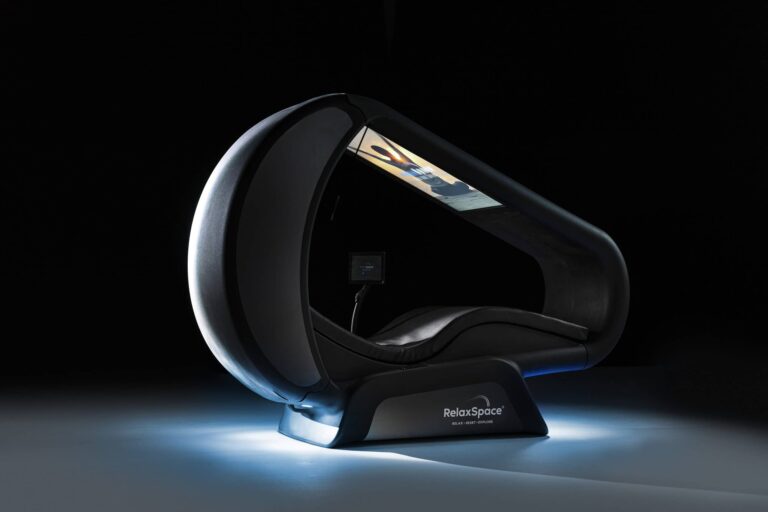What Is Sensory Awareness and How Does It Improve Focus and Decision-Making?
Have you ever noticed how certain sounds, sights, or smells instantly grab your attention? This is sensory awareness in action. It is our ability to consciously perceive and interpret sensory information from the world around us. Whether it’s recognizing a familiar voice in a crowded room or reacting quickly to an approaching vehicle, our senses play a crucial role in how we navigate daily life.
Beyond basic perception, sensory awareness is directly linked to cognitive function, focus, and decision-making. When we train our senses to be more attuned, we can improve reaction time, enhance concentration, and make better choices under pressure. This article explores how sensory perception—especially vision—affects cognitive function and provides practical ways to strengthen sensory awareness for sharper focus and improved decision-making.
Understanding Sensory Awareness
What Is Sensory Awareness?
Sensory awareness is the conscious recognition and interpretation of sensory input. Our brains receive constant signals from our eyes, ears, nose, skin, and tongue, helping us process our surroundings. While some of these sensations occur passively, we can train ourselves to be more aware of them, improving our ability to focus and react.
For example, professional athletes use sensory training to sharpen their reflexes, while musicians fine-tune their hearing to detect subtle variations in sound. The more we actively engage with our senses, the more effectively we can filter distractions and process information.
The Connection Between Sensory Awareness and Cognitive Function
The brain relies on sensory input to function efficiently. When our senses work optimally, they help us absorb and analyze information faster. This, in turn, improves memory, learning, and overall cognitive performance.
On the other hand, when sensory perception is dulled—due to poor vision, hearing loss, or sensory overload—our ability to focus and make decisions is compromised. For individuals with hearing loss, the use of hearing aids can significantly improve sensory input, enhancing overall cognitive function. However, hearing aid prices can vary widely depending on the technology, features, and brand, making it important to weigh options carefully. Sharpening our sensory awareness strengthens the brain’s ability to sort relevant information from distractions, leading to clearer thinking and better decision-making.
The Role of Vision in Focus and Decision-Making
How Vision Affects Cognitive Function
Among all the senses, vision plays the most significant role in cognitive function. Studies show that about 80% of all learning occurs through visual input. When vision is impaired—whether due to nearsightedness, farsightedness, or other conditions—our ability to focus and process information efficiently is affected.
Blurred or distorted vision can lead to mental fatigue, reduced concentration, and slower reaction times. This is why people who experience vision problems often struggle with reading, driving, or performing tasks that require quick decision-making.

Vision Health and Cognitive Performance
Maintaining good vision health is essential for optimal brain function. Clear eyesight allows for better focus, faster information processing, and improved reaction time. For individuals experiencing age-related vision changes, vision correction procedures like Refractive Lens Exchange with Active Life Lenses can help restore clarity, reducing strain and enhancing overall cognitive performance.
By ensuring that our vision remains sharp, we support the brain’s ability to make quick, accurate decisions—whether in professional settings, sports, or everyday tasks.
How Sensory Awareness Enhances Focus
The Brain’s Filtering System
Our brains are constantly bombarded with sensory information, but not all of it is relevant. To maintain focus, the brain filters out unnecessary stimuli and prioritizes what requires attention. This filtering system helps us stay on task, whether we are reading, working, or engaging in complex decision-making.
However, distractions—like excessive noise, digital screen overload, or mental stress—can interfere with this process, making it harder to concentrate. By enhancing sensory awareness, we can train our brains to manage distractions more effectively, improving focus and mental clarity.
Training Sensory Awareness for Better Focus
Improving sensory awareness doesn’t require complex training. Simple techniques like mindfulness, deep breathing, and visualization can significantly enhance focus.
For example, practicing mindful listening—where you focus on a single sound while ignoring background noise—can improve auditory processing. Similarly, engaging in visual exercises, like tracking objects with your eyes, can strengthen visual perception. These small habits help the brain become more efficient at sorting information, leading to better focus and productivity.
The Link Between Sensory Awareness and Quick Decision-Making
How Sensory Perception Influences Reaction Time
In fast-paced environments, the ability to react quickly can make all the difference. Whether it’s an athlete responding to a moving ball, a driver avoiding an obstacle, or a doctor making a split-second decision in surgery, sensory awareness directly influences reaction time.
When our senses are sharp, our brains process information faster, leading to quicker and more accurate responses. Conversely, reduced sensory perception—caused by fatigue, poor vision, or distractions—can slow down decision-making and increase the likelihood of errors.
Improving Decision-Making Through Sensory Training
Enhancing sensory awareness through training can significantly improve decision-making. Activities like meditation, cognitive puzzles, and sensory-based exercises help fine-tune perception and judgment.
For instance, practicing reaction-time exercises—such as catching a ball or responding to visual cues—can sharpen reflexes. Similarly, engaging in sensory-rich environments, like nature walks or music therapy, can improve the brain’s ability to process and react to information efficiently.
Practical Tips to Strengthen Sensory Awareness
Daily Habits for Sensory Engagement
Improving sensory awareness doesn’t require major lifestyle changes. Simple daily habits can help:
- Spend time in different environments – Exposure to varied sounds, sights, and textures helps keep the senses sharp.
- Limit screen time – Reducing digital eye strain allows the brain to process sensory input more effectively.
- Practice mindful eating – Paying attention to flavors and textures enhances sensory perception.
Exercises to Improve Sensory Perception

Image by alandsmann on Pixabay
There are specific exercises designed to strengthen sensory awareness:
- Eye exercises – Moving your eyes in different directions and focusing on distant objects can improve visual clarity.
- Mindful walks – Walking while consciously observing surroundings enhances spatial awareness.
- Brain-training games – Puzzle-solving and memory games help improve cognitive processing speed.
- Stay hydrated and eat a balanced diet – Proper nutrition supports sensory and cognitive functions.
Conclusion
Sensory awareness is a powerful tool that influences focus, reaction time, and decision-making. By training our senses and maintaining good vision health, we can sharpen our cognitive abilities, improve concentration, and make quicker, more informed choices.
Whether through mindfulness, vision correction, or sensory exercises, enhancing sensory awareness can lead to significant improvements in daily performance. By taking small steps to strengthen our sensory perception, we can enjoy clearer thinking, better focus, and a more responsive mind.


